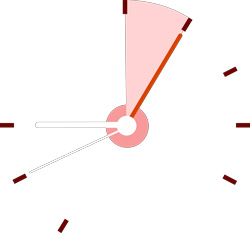 When it comes to breast cancer, timely mammograms offer crucial protection.
When it comes to breast cancer, timely mammograms offer crucial protection.
These safe, low-dose x-ray exams can detect tiny breast lumps early, sometimes before you can even feel them. When breast cancer is caught at this stage, it is often easier to treat successfully.
During a mammogram, each of your breasts will be pressed between plastic plates. This compression is necessary to produce the best images with the lowest possible amount of radiation. A technologist will then take x-ray images of each breast to check for any abnormal areas.
Mammograms are so effective at saving lives that experts say most women should start having them at age 40. Unfortunately, some women put off having their mammograms. Among the given reasons: anxiety and concerns about discomfort. It's true that breast compression during a mammogram can cause some discomfort. But any discomfort you might feel is usually brief—about 10 to 15 seconds for each image—and the protection gained from getting a mammogram is worth it!
There are also things you can do to help make your mammogram more comfortable and stress-free:
• If you're still having menstrual periods, try to avoid scheduling your mammogram for the week before or during your period. Your breasts are more likely to be swollen and tender during this time.
• Since you'll need to undress from the waist up for the test, plan to wear a two-piece outfit, like a blouse and pants. That way, you'll only have to remove your top.
• Take a few deep breaths before your mammogram to calm your mind and body.
• If you feel more than mild discomfort during the mammogram, tell the technologist. They may be able to adjust the compression to improve your comfort.
Women with a high risk of breast cancer may need to start getting mammograms before age 40. Ask your doctor when and how often you should be screened. And if it's time, make an appointment without delay.
Watson Clinic’s department of Breast Health Services offers highly advanced mammography technologies, supervised and read by dedicated breast-specific imagers. To schedule your annual mammogram, call 863-680-7755, option 3.
Sources: American Cancer Society; American Hospital Association; Centers for Disease Control and Prevention; National Cancer Institute